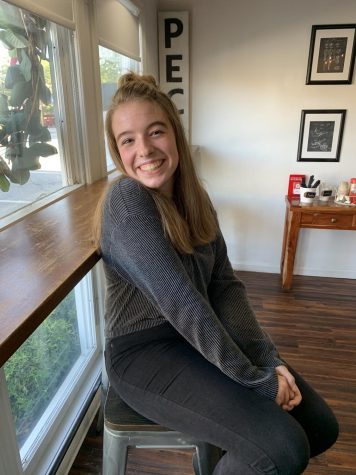Artistic Creation During Extended Isolation: Why Black Bear Should Be the First Thing on Your Watchlist
Photo Courtesy of firstshowing.net
Black Bear Movie Poster
May 18, 2021
Despite its popularity among film fans and music snobs, a great way to make someone instantly dislike you is to use the classic line “You probably haven’t even heard of it.” Serving as almost the opposite of an ice breaker, any kind of media buff is sure to come across just as pretentious as the works they claim to love, but, unfortunately, it’s a sentiment that holds occasional validity. And even if it makes you look as irritating as the people who echo it, some films are so great that they deserve to be lifted out of total obscurity by any means necessary.
Black Bear is a film that thoroughly deserves this kind of praise.
Writer and director Lawrence Michael Levine’s film, which premiered in January of 2020 at Sundance Film Festival, follows Allison (played by Aubrey Plaza), an actress turned writer looking for inspiration for her next film in the isolation of the Adirondack Mountains. Hosted by couple Blair (Sarah Gadon) and Gabe (Christopher Abbott), Allison is placed at the intersection of artistic pursuit and personal desire.
What makes this film so unique is that it established this idea of artistic merit being inherently personal as something also inherently dangerous. Upon Blair and Allison’s first encounter, Blair immediately tells her that she’s “hard to read”, to which Allison flatly responds, “You know, I get that all the time.” As the film progresses, however, it becomes increasingly clear that this may be Allison’s intention, as creating discomfort, conflict, and tension is the only vehicle for progressing on her screenplay.
Levine takes this idea even further by making the second and third acts an inversion of the first, placing Gabe and Blair as the filmmakers, and Allison as the victim of their manipulation in the name of creating a masterpiece.
Exploring these themes on their own isn’t groundbreaking, and the film feels aware of this. Despite what some audiences may feel, this film isn’t one shrouded with pretentiousness or arrogance. Instead, both the incredible performances and screenplay feel like a desperate plea to audiences: Look what art can do to you.
Plaza, especially, perfectly articulates the grey area between creation and creator, even in a film with two wildly different halves. Her usual deadpan style isn’t abandoned, either, but used to her advantage in a particularly refreshing way, especially when compared to some performances in the endless sea of streaming platform dramas.
Allison’s descent into someone completely consumed by their work is gloriously aided by Abbott and Gadon’s performances, as well as the shifts in cinematography and direction.
Considering the film was released in December 2020, it’s not shocking that it got very little attention from general filmgoers. It is disappointing, however, that it was left out of the Film Independent Spirit Award nominations, especially considering what an impressive divergence Plaza’s performance is from many of her other credits.
Although the experimental nature of its structure may turn off some viewers, this film at least deserves credit for its perfectly executed criticism of the collapsed artistic boundary and the necessity of doing so in a time where method acting and directing is so widely praised.
Additionally, tackling the trope of the tortured artist can be daunting and easily made frustrating for viewers. Black Bear never feels this way, though, and manages to be thoroughly entertaining while still thought-provoking and meaningful.
Even if award show voters may not agree, this film is worth the watch. It is an ode to fans of directors’ cuts and behind-the-scenes content, sure, but it doesn’t feel exclusionary to that audience. Black Bear invites you to question what it means to create and consume, and maybe that’s something that deserves our answer.











